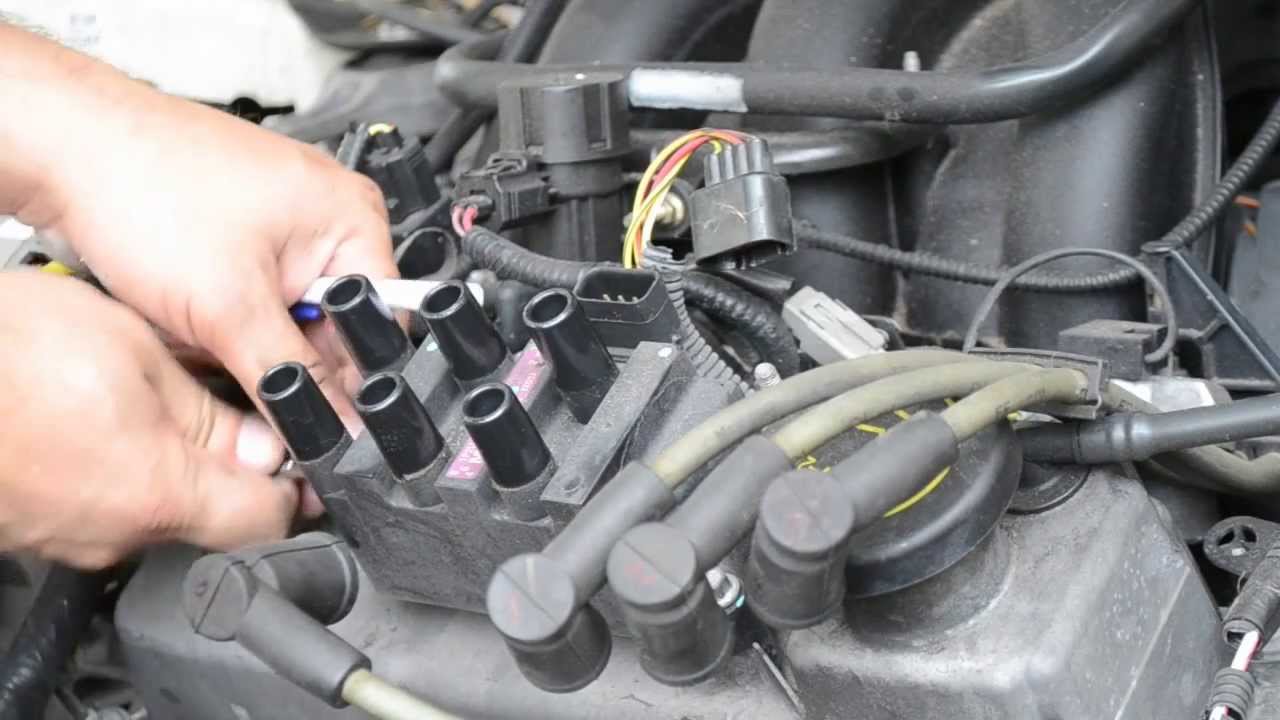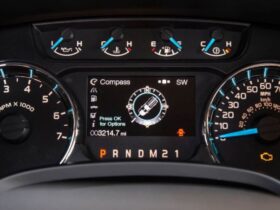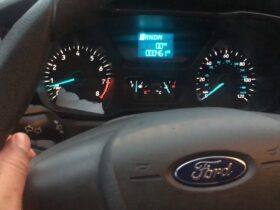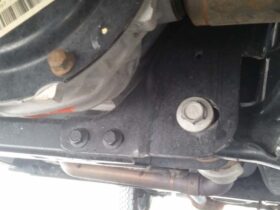The Ford F150‘s engine performance relies heavily on its ignition coil packs, with most models featuring 7 to 8 coils depending on the engine configuration. These vital components transform the battery’s low voltage into the thousands of volts needed to create the spark that ignites the fuel-air mixture in your engine’s cylinders. When these coil packs fail, they can cause numerous performance issues that affect your truck’s reliability and efficiency.
Testing Methods For F150 Coil Pack
Testing F150 coil packs requires precise measurements and the use of proper tools. The most reliable method involves using an ohmmeter or multimeter to check both primary and secondary resistance values. Here are the standard specifications:
- Primary resistance: 1 to 4 ohms
- Secondary resistance: 6,500 to 15,500 ohms
- Maximum ohmmeter reading capability needed: 32,000 ohms
- Testing duration: 20-30 minutes
- Replacement time: 15-20 minutes per coil pack
Step-by-Step Testing Procedure For F150 Coil Pack
1. Safety Preparation
- Open the hood and locate the battery
- Disconnect the negative terminal
- Allow the engine to cool completely
- Ensure all electrical systems are off
2. Locating the Coil Packs
- Locate the spark plug wires
- Carefully disconnect them one at a time
- Label each wire to ensure proper reconnection
- Remove any protective covers or shields
3. Resistance Testing
- Set your ohmmeter to the appropriate range
- Test primary resistance (0.57 to 5,100 ohms range)
- Check secondary resistance (6-20 kilohms range)
- Compare readings to manufacturer specifications
- Test each coil pack individually
4. Additional Testing Methods
- Remove coil packs for visual inspection
- Check electrical connectors for damage
- Verify proper mounting and alignment
- Inspect surrounding components for damage
Warning Signs of Failing Coil Packs
Performance Issues
Acceleration Problems
The most noticeable symptom of failing coil packs is poor acceleration. Your F150 may experience:
- Hesitation when pressing the gas pedal
- Inconsistent power delivery
- Jerking or stuttering during acceleration
- Reduced overall performance
- Difficulty maintaining highway speeds
Engine Performance
Failing coil packs significantly impact engine operation through:
- Rough idling
- Random misfiring
- Uneven power distribution
- Reduced RPM stability
- Poor throttle response
Diagnostic Indicators
Check Engine Light and Trouble Codes
Modern F150s use sophisticated engine management systems that detect coil pack issues:
Common Trouble Codes:
- P0300: Random/multiple cylinder misfire
- P0301-P0312: Specific cylinder misfire codes
- The last digit indicates the affected cylinder
- Additional codes may appear for related systems
Engine Sounds
Listen for these distinctive sounds:
- Ticking noises from the engine bay
- Irregular idle sound
- Popping or backfiring
- Changes in normal engine noise
System-Wide Effects
Fuel System Impact
Failed coil packs create a cascade of fuel-related issues:
- Increased fuel consumption
- Poor fuel economy
- Incomplete combustion
- Unburned fuel in the exhaust
- Irregular fuel delivery
Electrical System Symptoms
Watch for these electrical indicators:
- Slow or difficult starting
- Extended cranking time (more than 2-6 seconds)
- Intermittent power delivery
- Electrical system warnings
- Battery drain issues
Exhaust System Signs
Pay attention to exhaust characteristics:
- Excessive smoke
- Black or dark exhaust color
- Strong fuel smell
- Irregular exhaust patterns
- Visible unburned fuel
Spark Plug Relationship
Coil pack failure often affects spark plugs:
- Premature spark plug wear
- Carbon fouling
- Electrode damage
- Heat damage
- Irregular firing patterns
Preventive Maintenance
To maintain healthy coil packs:
- Regular inspection of electrical connections
- Proper spark plug maintenance
- Timely replacement of worn components
- Protection from heat and moisture
- Proper installation techniques
Professional Repair Considerations
When dealing with coil pack issues:
- Document all symptoms
- Keep maintenance records
- Use OEM or high-quality replacement parts
- Consider replacing all coil packs if multiple failures occur
- Follow proper torque specifications during installation
Understanding and properly maintaining your F150’s coil packs is crucial for optimal engine performance. Regular inspection and prompt attention to warning signs can prevent more severe engine damage and costly repairs. When in doubt, consult a qualified mechanic specializing in Ford vehicles for proper diagnosis and repair.






Leave a Reply
View Comments